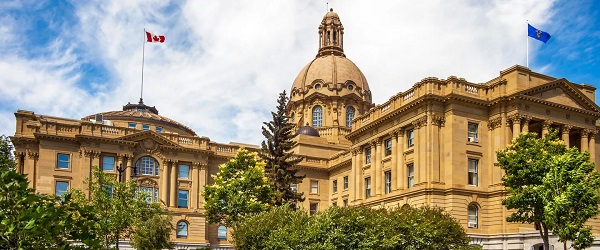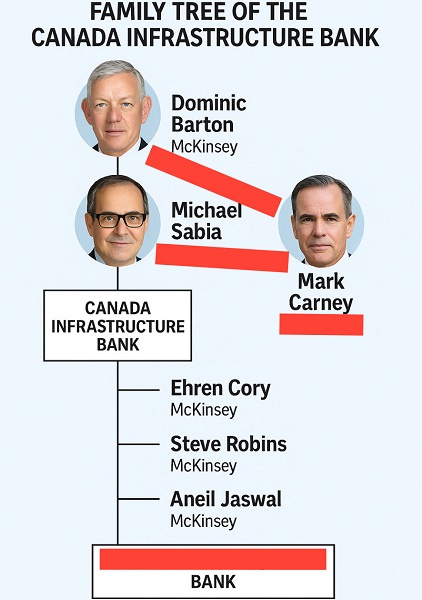Business
Timeline: Panama Canal Politics, Policy, and Tensions

 By Greg Collard and James Rushmore
By Greg Collard and James Rushmore
Hegseth’s visit to Panama includes strongly-worded speeches directed at China
While the trade war with China plays out, another war of political rhetoric is heating up again over the Panama Canal.
Defense Secretary Pete Hegseth was in Panama this week, and pointed out America’s military presence and joint training exercises with Panamanians. Though he said the U.S. doesn’t seek war and that “war with China is certainly not inevitable,” he had a strong military message for the CCP:
Racket News is a reader-supported publication.
To receive new posts and support my work, consider becoming a free or paid subscriber.
Our relationship is growing in part to meet communist China’s rising challenge. China-based companies continue to control critical infrastructure in the canal area that gives China the potential to conduct surveillance activities across Panama. This makes Panama and the United States less secure, less prosperous, and less sovereign.
He said “China will not weaponize this canal,” and it will stay that way “through the deterrent power of the strongest, most effective, and most lethal fighting force in the world.”
Hegseth followed up Wednesday with a similar message to the Central American Security Conference.
The era of capitulating to coercion by the communist Chinese is over. They’re growing an adversarial control of strategic land and critical infrastructure in this hemisphere cannot and will not stand. To accomplish this, our countries cannot face these shared threats alone. We have to face them together. America will confront, will deter, and if necessary defeat these threats alongside all of you, our close and valued partners. Our mission is simple: achieve peace through strength through an America first approach. We’re doing this by restoring the warrior ethos, rebuilding our military and reestablishing deterrence.
Obviously, that didn’t go over well with China. Its embassy in Panama accuses the U.S. of hypocrisy as it “repeats ad nauseam the ‘Chinese interference and influence.’” It noted the U.S. invaded Panama in 1989 and asked: “Who represents the real threat to the Channel? People will make their own judgment.”
(In making that judgment, a reminder that the U.S. still controlled the Panama Canal in 1989, and Panama was run by dictator Manuel Noriega who had been indicted in the U.S. on drug crimes. He was also a former CIA informant, and American officials knew about his crimes — which included helping Pablo Escobar — for years before doing anything about it).
China’s influence over the Canal has grown since 2017, when Panama severed ties with Taiwan and established diplomatic relations with China. A Chinese company controls the largest port on the Atlantic side of the Canal, and a Hong Kong company, CK Hutchinson, controls ports on both ends of the Canal. Last month, BlackRock, an American investment firm, reached a deal to buy CK Hutchinson’s ports, but that deal could be in jeopardy of falling through. Chinese firms are also building a bridge across the Canal.
President Trump has said the U.S. should have never given up the canal to Panama, which occurred on Dec. 31, 1999, as agreed to in treaties that President Carter signed in 1977 and won Senate approval the following year.
While critics place a lot of blame on Carter, Presidents Nixon and Ford started the negotiations. There was bipartisan support to reach a deal (there was even a tentative deal in place in 1967, but a coup in Panama ended those negotiations) because there were tensions and sometimes violence between locals and Americans. The audio below is from a 1976 NBC story that describes life inside the barbed wire fence that surrounded the Canal Zone: “Its 40,000 American residents, both military and civilian, enjoy a suburban lifestyle.” Panamanians on the other side of the fence were resentful.
Ronald Reagan changed the political debate over the Canal during his primary challenge to Ford in 1976. Opposition to any deal with Panama became the focus of his campaign. Reagan says in the ad below: “We bought it, we paid for it, and General Torrijos (Panama’s dictator) should be told we’re going to keep it.”
The message was effective. Reagan won 24 states, and Ford didn’t secure the GOP nomination until the Republican National Convention.
Today’s debate over the Panama Canal
The Panama Canal was not a campaign issue in 2024. Trump first complained about passage rates charged to the Navy and U.S. shipping companies in two December 21 social media posts. Trump wrote that if the situation does not improve, “we will demand that the Panama Canal be returned to us, in full, and without question. To the Officials of Panama, please be guided accordingly!”
He repeated those criticisms and threats in a speech the following day:
It was not given for the benefit of others by a token of cooperation, but it was given to Panama and to the people of Panama, but it has provisions. You gotta treat us fairly, and they haven’t treated us fairly. If the principles, both moral and legal, of this magnanimous gesture of giving are not followed, then we demand that the Panama Canal be returned to the United States of America in full, quickly and without question.
Congresswoman Debbie Wasserman Schultz called that “preposterous.” House Minority Leader Hakeem Jeffries also dismissed the idea of regaining control of the Panama Canal.
But Democratic Congressman Jared Moskowitz said Trump has a point. He dismissed the idea of taking the Canal by force, but said “the United States reasserting its history in the Panama Canal is actually a good, important, strategic issue.”
At a hearing in January, Senate Commerce Committee Chairman Ted Cruz voiced concern about the bridge that Chinese firms are building across the Canal.
The partially-completed bridge gives China the ability to block the Canal without warning, and the ports give China ready observation posts to time that action. This situation poses acute risks to U.S. national security.
A witness at that hearing, George Mason international law professor Eugene Kontorovich, testified that the presence of a Chinese company essentially means the Chinese military has a presence in the Canal.
In a communist regime, distinctions between private and government-owned firms are not as absolute or clear-cut as in a Western liberal society. This is particularly the case for the People’s Republic of China (PRC), which has an official doctrine known as “Military-Civilian Fusion,” a top-level strategy of the CCP Central Committee since 2019.
Here’s a timeline of key events in the history of the Panama Canal leading up to this week’s speeches from Hegseth.
January 22, 1903
The U.S. and Colombia, which controlled what is now Panama, agree to a treaty that gives the U.S. rights to the land to build the Canal in return for $10 million and $250,000 annually. However, Colombia’s congress rejects the deal.
November 3, 1903
With the backing of the U.S., Panama declares its independence from Colombia.
November 18, 1903
The U.S. and Panama sign the Hay-Bunau-Varilla Treaty, which establishes the Panama Canal Zone and “grants to the United States all the rights, power and authority within the zone.” The treaty has the same financial terms that Colombia’s Congress rejected. It’s ratified by the Senate and approved by President Theodore Roosevelt in February 1904.
August 15, 1914
The Panama Canal opens to shipping.
January 9, 1964
Panamanian rioters invade the Canal Zone and attempt to substitute the U.S. flag with a Panamanian one. The riots last three days, killing 22 Panamanians and four U.S. troops.
September 7, 1977
President Jimmy Carter and Panamanian dictator Omar Torrijos sign the Torrijos-Carter Treaties. Panama will take control of the Canal on Dec. 31, 1999. President Carter says:
This agreement thus forms a new partnership to ensure that this vital waterway, so important to all of us, will continue to be well-operated, safe, and open to shipping by all nations now and in the future. Under these accords, Panama will play an increasingly important role in the operation and defense of the Canal during the next 23 years, and after that, the United States will still be able to counter any threat to the Canal’s neutrality and openness for use.
Panama gains control of the Canal. Army Secretary Louis Caldera, the head of the U.S. delegation at the handover ceremony, says:
The United States could not aspire to be a good neighbor to Latin America and continue occupying and dividing the territory of a country considered a friend.
December 21, 2024
On Truth Social, President-elect Trump slams Panama for charging the United States “exorbitant prices and rates of passage” to use the Canal. He claims that China is influencing the canal’s management, before adding, “This complete ‘rip-off’ of our Country will immediately stop.”
In a follow-up post, Trump adds:
December 22, 2024
While delivering a speech in Phoenix, Trump asks, “Has anyone ever heard of the Panama Canal? Because we’re being ripped off at the Panama Canal like we’re being ripped off everywhere else.”
When an audience member suggests taking back the Canal, Trump responds, “That’s a good idea.”
Panamanian President Jose Raul Mulino responds to Trump in a video he posts on X:
Mulino also issues a written statement, citing the Torrijos-Carter Treaties: “Every square meter of the Panama Canal and its adjacent area belong to PANAMA, and will continue to be. The sovereignty and independence of our country are not negotiable.”
He adds that passage rates are determined by “market conditions, international competition, operating costs and the maintenance and modernization needs of the interoceanic waterway,” and insists upon the Canal’s “permanent neutrality” and “open and safe operation for all nations.” He also rejects the notion that China wields any special influence over the Canal: “The Canal has no direct or indirect control from China, nor the European Union, nor the United States or any other power.”
Trump’s response:
Trump also shares an AI-generated image with the following caption:
December 23, 2024
Panamanian protesters gather outside the U.S. embassy to protest Trump.
Among the chants: “Get out invading gringo” and “Trump, animal, leave the Canal alone.”
They burn an American flag and set fire to an image of Trump.
“Donald Trump and his imperial delusion cannot claim even a single centimeter of land in Panama,” says one protester.
December 25, 2024
Trump posts the following Christmas message:
Minutes later, he announces that Miami-Dade County Commissioner Kevin Marino Cabrera will serve as the next U.S. ambassador to Panama, “a Country that is ripping us off on the Panama Canal, far beyond their wildest dreams.”
December 26, 2024
Panamian President Murino holds a press conference to send a message to Trump that the Canal is not for sale.
The Canal is Panamanian and belongs to Panamanians. There’s no possibility of opening any kind of conversation around this reality, which has cost the country blood, sweat and tears.
He also denies Trump’s claim that the Chinese military has any presence in the Canal, saying, “There are no Chinese soldiers in the Canal, for the love of God.”
January 7, 2025
During a press conference at Mar-a-Lago, Trump refuses to rule out using military force to acquire the Panama Canal. He claims that it was “built for our military” and “is vital to our country.” He once again argues that the Canal is “being operated by China.”
January 9, 2025
Republican Congressman Dusty Johnson of South Dakota introduces the Panama Canal Repurchase Act of 2025, which authorizes the President and the Secretary of State to “initiate and conduct negotiations with appropriate counterparts of the Government of the Republic of Panama to reacquire the Panama Canal.”
Panama Canal Administrator Ricaurte Vásquez tells the Associated Press that the Canal cannot charge lower rates to U.S. ships. He speaks of his desire to “maintain the established rules,” insists that the Canal is a neutral economic zone, and says that the Chinese companies operating in its ports have no special influence over how the Canal is run.
January 20, 2025
During his inauguration address, President Trump describes how “American ships [that use the Panama Canal] are being severely overcharged and not treated fairly in any way, shape, or form.” He repeats his assertion that China controls the Canal and closes with the following: “We gave it to Panama, and we’re taking it back.”
Trump’s comments prompt another statement from Mulino in which he says, “The Canal was not a concession from anyone.”
Panama also sends the statement to the U.N. Security Council.
February 2, 2025
Secretary of State Marco Rubio arrives in Panama City to meet with Mulino.
Mulino attempts to assuage Rubio’s concerns about Chinese influence by announcing that Panama would allow its membership in China’s Belt and Road Initiative to expire. He also vows to allow more U.S. investments in Panama.
Later that day, Trump reiterates his interest in obtaining the Canal. He tells reporters that “something very powerful is going to happen” if Panama does not cede control over the waterway.
Secretary of State Rubio is in Panama right now, and we’re talking about the Panama Canal. What they’ve done is terrible. They violated the agreement. They’re not allowed to violate the agreement.
China is running the Panama Canal. That was not given to China; that was given to Panama, foolishly. But they violated the agreement, and we’re going to take it back, or something very powerful is going to happen.
March 4, 2025
A consortium led by BlackRock announces that it will purchase CK Hutchison’s holdings in the Panama Ports Company, which owns and operates two ports on each side of the canal. CK Hutchison is owned by Hong Kong billionaire Li Ka-shing, and it reportedly felt “political pressure to exit the ports business.” The deal is worth over $19 billion.
Trump references the deal during his address to the joint session of Congress that evening (1:19:50 of the video below).

March 5, 2025
In an X post, Mulino denies Trump’s implication that the BlackRock deal lays the groundwork for a U.S. takeover of the Canal. He accuses Trump of lying.
March 13, 2025
NBC News reports that the Trump administration plans to bolster the U.S. military presence in Panama. Military officials tell NBC that, while the goal is to eventually reclaim control over the Canal, a U.S. invasion remains unlikely.
March 20, 2025
The Chinese government threatens to block CK Hutchison from selling its controlling interest in the two Panama Canal ports to BlackRock.
April 7, 2025
A Panamanian government investigation finds that CK Hutchison owes the country’s government over $300 million in fees because it did not properly renew its contract to operate its two ports along the Canal. This development has the potential to delay or even jeopardize the company’s deal with BlackRock.
Later that night, Secretary of Defense Pete Hegseth arrives in Panama. He will speak at the reopening of an American port and address the Central American Security Conference. He is the first secretary of defense to visit Panama in two decades.
April 8, 2025
Hegseth meets with Mulino and Panama Canal Authority Administrator Ricaurte Vazquez.
They release a joint statement that says they agree to “strengthen bilateral Canal security cooperation,” guarantee “the expedited transit of warships and auxiliary vessels of the Republic of Panama and the United States, improve bilateral cyber cooperation,” and allocate Army Corps of Engineers resources towards ensuring the Canal’s sustainability. They also announce that they will move toward adopting a new mechanism for U.S. payment of Canal tolls and charges. The Defense Secretary praises Mulino for withdrawing Panama from the Belt and Road Initiative.
Panama’s version of their joint statement includes an additional detail: It says that Hegseth “recognized Panama’s leadership and inalienable sovereignty over the Panama Canal and its adjacent areas.”
Racket News is a reader-supported publication.
To receive new posts and support my work, consider becoming a free or paid subscriber.
Business
Inquiry discloses Canada providing a reported $2.5 million in aid to Chinese universities
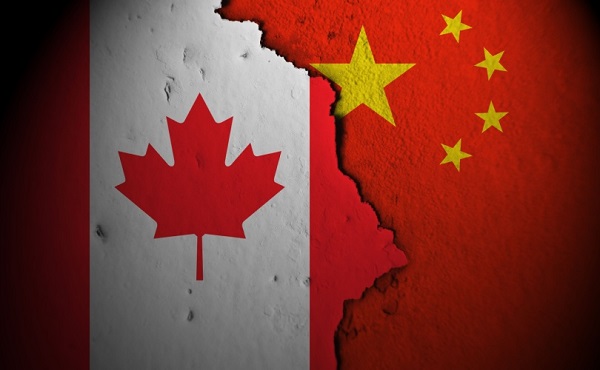
From LifeSiteNews
The Department of Foreign Affairs refused to say how much money went to schools in China after Conservative MP Lianne Root asked for a dollar amount.
Canadian taxpayers are out millions of dollars that went to aid universities in Communist China, records show.
An Inquiry of Ministry, which was brought forth in the House of Commons at the request of Conservative MP Lianne Rood, shows that the Department of Foreign Affairs refused to say how much money was given to schools in China.
“The department concluded that producing and validating a comprehensive response to this question would require a collection of information that is not possible in the time allotted and could lead to disclosure of incomplete and misleading information,” the department said.
As noted by Blacklock’s Reporter, over the past five years, $2.5 billion was allocated in foreign aid to schools outside of Canada, with educational grants totaling $1,116,507, including $806,257 for postsecondary campuses, primarily directed to China.
“The department undertook an extensive preliminary search to determine the amount of information that would fall within the scope of the question and prepare a comprehensive response,” the department wrote in an Inquiry of Ministry tabled in the House of Commons.
Rood, not happy with the information from the report, asked at a recent meeting, “About Canadian funding for education in developing countries, how much was spent?”
Opposition House leader Andrew Scheer told reporters he is of the view that no money should be going to fund schools in “Communist” China.
“I don’t believe Canadian taxpayers should be sending any money to China,” he said.
“We’re talking about a Communist dictatorial government that abuses human rights, quashes freedoms, violates the rights of its citizens, and has a very aggressive foreign policy throughout the region.”
Scheer called upon the Liberal government of Prime Minister Mark Carney to “stand up for itself, stand up for Canadians, stop being bullied and pushed around on the world stage, especially by China.”
During a 2025 federal election campaign debate, Conservative Party leader Pierre Poilievre called out Carney for his ties to Communist China.
As reported by LifeSiteNews, the Foreign Interference Commission concluded that operatives from China may have had a hand in helping to elect a handful of MPs in both the 2019 and 2021 Canadian federal elections. It also determined that China was the primary foreign interference threat to Canada.
As reported by LifeSiteNews, a new exposé by investigative journalist Sam Cooper has claimed there is compelling evidence that Carney and former Prime Minister Justin Trudeau are strongly influenced by an “elite network” of foreign actors, including those with ties to China and the World Economic Forum.
Business
UK Government Dismisses Public Outcry, Pushes Ahead with Controversial Digital ID Plan
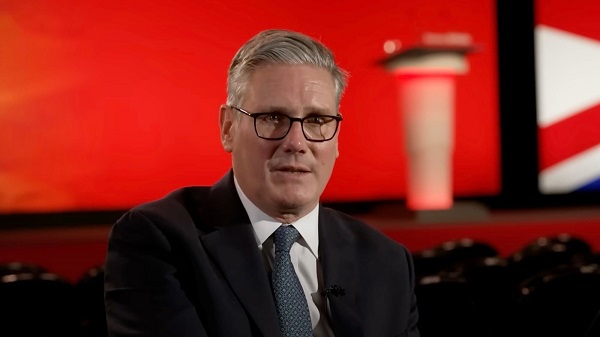
Over 2.7 million signatures couldn’t move the needle on a dystopian plan already set in motion.
|
A UK government plan to introduce a nationwide digital identification system is moving ahead, despite a public backlash that saw more than 2.7 million people sign a petition urging its cancellation.
The proposal, first announced by Labour in September, would provide a digital ID to every UK citizen and legal resident aged 16 and above.
Prime Minister Keir Starmer claimed the new system would help strengthen border enforcement and reduce illegal employment, describing the ID, dubbed the “Brit Card,” as a tool to “make it tougher to work illegally in this country, making our borders more secure.”
The public response was overwhelmingly opposed. Warnings about centralized data collection, privacy intrusions, and increased state surveillance flooded public discourse.
Descriptions of the proposal ranged from a “dystopian nightmare” to fears of a gateway to “digital control.”
Not long after Labour’s announcement, a petition was created on the official UK Government and Petitions website.
|
 |
|
It quickly gathered enough signatures to qualify for parliamentary debate, a 100,000-signature benchmark, and within days surged past two million.
Despite reaching over 2.7 million signatures, the government issued a formal response rejecting the petition and restating its commitment to the scheme.
According to the response, published by the Department for Science, Innovation and Technology, the new ID system is part of Labour’s wider aim to modernize public services.
“We will introduce a digital ID within this Parliament to help tackle illegal migration, make accessing government services easier, and enable wider efficiencies. We will consult on details soon,” the government wrote.
Although a formal consultation process is expected in the coming weeks, involving employers, unions, and civil society organizations, the government made it clear that legislation to support the digital ID system is on the way.
Over time, it is expected to serve as a single access point for government services like benefits, tax records, and other official interactions, potentially eliminating the need for physical documents or multiple logins.
The government’s decision to push ahead with a national digital ID comes in the shadow of the recently enacted Online Safety Act, which has already laid the groundwork for sweeping identity checks across the internet.
That law, marketed as a way to protect children from harmful content, gave regulators broad authority to demand age verification for accessing a wide range of online services.
The result is an emerging digital framework where proving who you are, even just to browse or communicate, is becoming a condition of access.
|
-
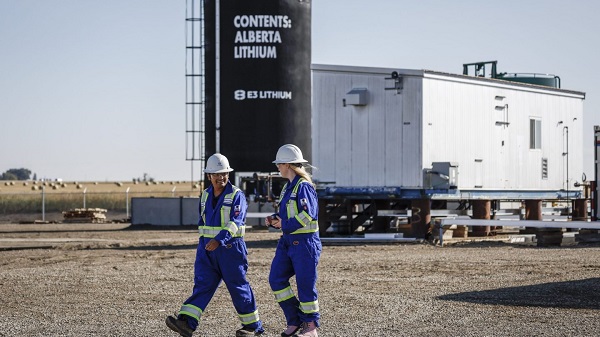
 Alberta2 days ago
Alberta2 days agoAlberta’s E3 Lithium delivers first battery-grade lithium carbonate
-
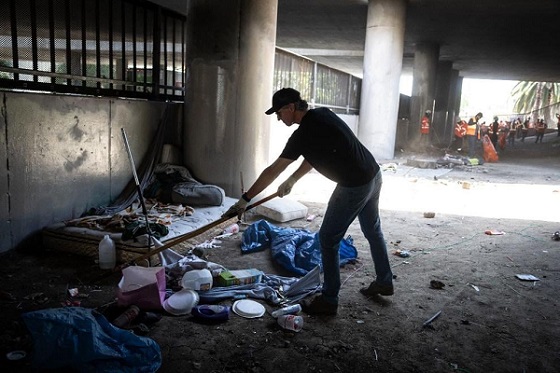
 Business2 days ago
Business2 days agoLA skyscrapers for homeless could cost federal taxpayers over $1 billion
-
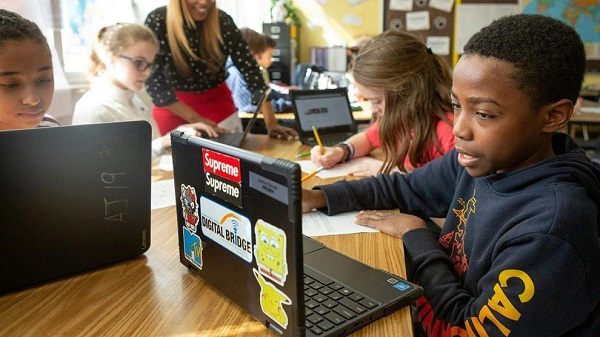
 Artificial Intelligence2 days ago
Artificial Intelligence2 days agoAI chatbots a child safety risk, parental groups report
-

 Energy2 days ago
Energy2 days agoNuclear power outperforms renewables every time
-
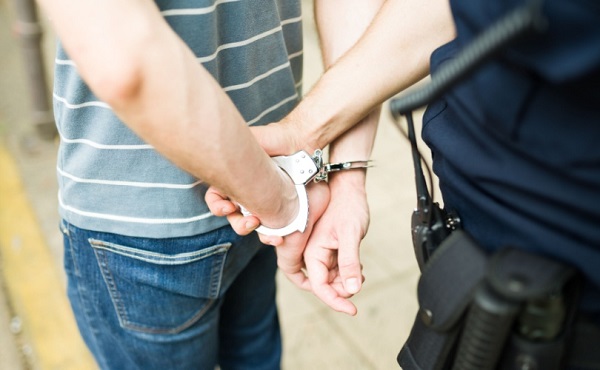
 Censorship Industrial Complex2 days ago
Censorship Industrial Complex2 days agoHurting someone’s feelings could be punishable under Canadian hate crime bill: legal expert
-

 Automotive2 days ago
Automotive2 days agoCanada’s EV subsidies are wracking up billions in losses for taxpayers, and not just in the auto industry
-

 Business1 day ago
Business1 day agoUK Government Dismisses Public Outcry, Pushes Ahead with Controversial Digital ID Plan
-
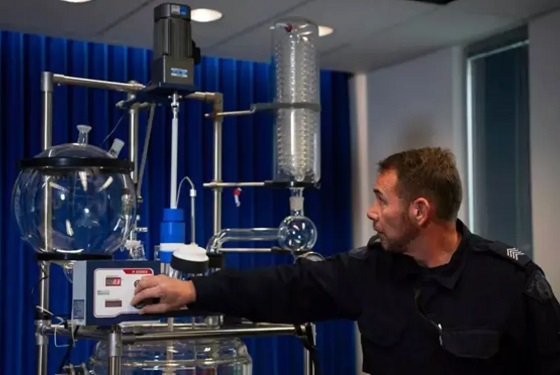
 Crime1 day ago
Crime1 day agoThe “Strong Borders Act,” Misses the Mark — Only Deep Legal Reforms Will Confront Canada’s Fentanyl Networks
























